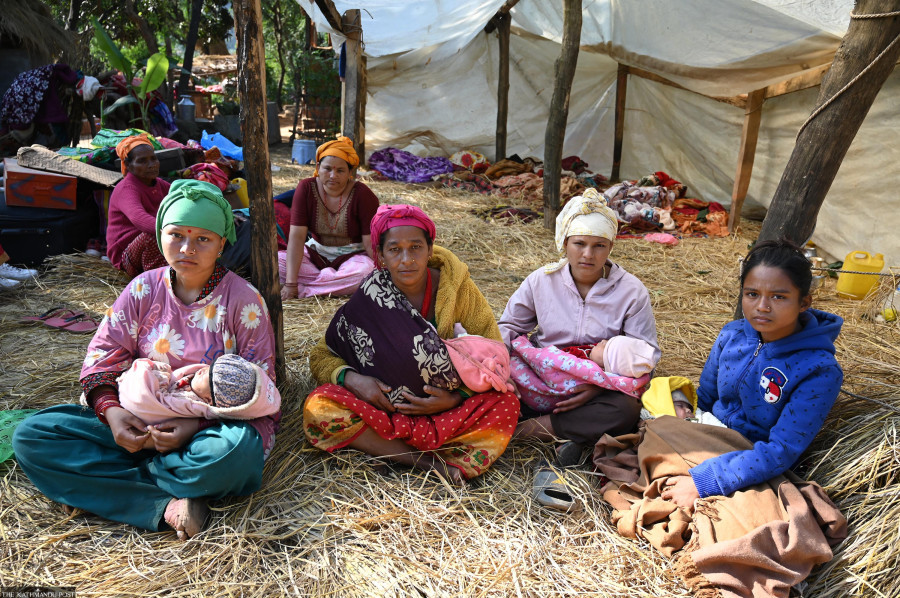Editorial
Out in the cold
Authorities must act fast to avoid more deaths and hardship in the quake-affected areas.
Survivors of the November 3 earthquake in Jajarkot, Rukum West and Salyan districts who have spent three weeks in open fields under flimsy tarps, are now braving bitter cold. Those who need special care like pregnant women, postpartum mothers, newborn babies, elderly and chronic patients are the worst affected. Forget special care, they are being deprived of even basics like safe shelter, warm clothes and food. The earthquake took the lives of at least 154 people in Jajarkot and Rukum West and injured 366 others. It damaged over 35,000 houses partially and over 26,000 completely. By most estimates, the state agencies and the three security agencies in particular did a commendable job in the immediate aftermath.
But reports coming from the disaster-hit districts in the past week are disturbing. As of Sunday evening, at least seven earthquake-displaced people, who had been living under makeshift tents after their houses collapsed, have died of cold-related complications. Some of them were in their 70’s and 80’s while others were in their 40’s and 50’s. With a little foresight, their lives could have been saved.
Following the earthquake, President Ramchandra Paudel, Prime Minister Pushpa Kamal Dahal and ministers from the federal government reached disaster-hit areas immediately. They took quick stock of the ground realities and the authorities were commended for their prompt action, mainly in rescue operations. But over the following days and weeks, some of those involved in post-quake efforts started being accused of do-goodery instead of actually working to help the needy. The government also failed miserably when it came to providing safe shelters and covering basic needs of the displaced people. This again caused great hardships for new mothers, pregnant women, children and the elderly even though the cold-related complications were predictable.
Whatever happened in the past, the authorities must now start working with a well-thought out plan. All efforts should be concentrated in setting up temporary shelters and comforting the displaced. As experts estimate, it may take around two years to rebuild their houses, so they need to be shifted from tents to safe temporary houses. In the meantime, there have been complaints of discrimination from postpartum mothers and pregnant women in distribution of relief materials. They say those having access to influential politicians can easily get whatever they need while others, including the most needy ones, are deprived of even the basics. Such anomalies must be addressed strictly and immediately to prevent further loss of lives and protect the health of the frail and ailing.
Local governments should be made the focal points in rehabilitation and reconstruction. However, for them to be effective, they need adequate equipment and human resources. Likewise, the concerned province has to work seriously in this time of need. This is perhaps the best opportunity for the Karnali provincial authorities to prove their relevance. Federal-level leaders can monitor the situation and help provincial and local governments with policy guidelines and availability of necessary resources. Hopefully the authorities will spring into action to avoid more deaths and hardship.




 18.12°C Kathmandu
18.12°C Kathmandu














